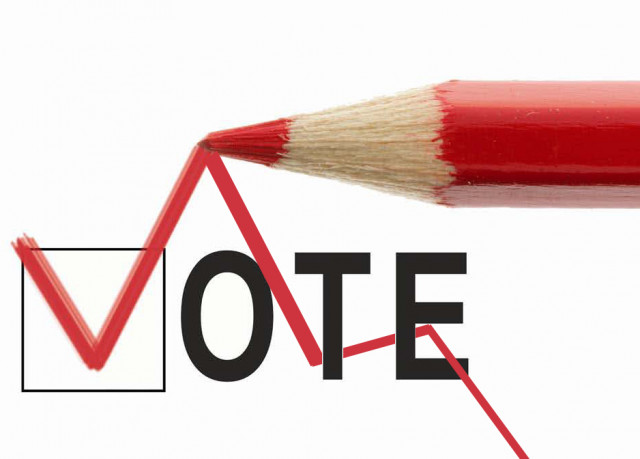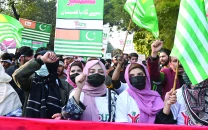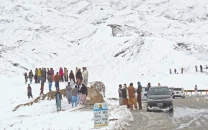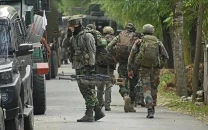Electoral process: Faulty civilian, military policies blamed for FATA imbroglio
Speakers at report launch underscore transparency, women’s representation.

Barriers to voter registration present significant problems for women, who represent just over one third of Fata’s 1.7 million registered voters. PHOTO: EXPRESS/FILE
The main reason for the disconnect of Federally Administered Tribal Areas (Fata) with the rest of the country is government policies and military. This was stated by Dr Ijaz Khan of University of Peshawar at a report launch here on Tuesday.
Titled “Electoral conditions in Federally Administered Tribal Areas of Pakistan”, the report highlights various issues and hurdles regarding security for voters and recommends steps to aid the continuation of free and fair elections. Furthermore, it talks about integrating local women into the country’s representation. The report was launched by Democracy Reporting International (DRI).

“The problems being faced by Fata are the same as elsewhere in the country, only the intensity is different. There is a misconception that Fata is the problem, however the real problem is Islamabad where the policies are made,” Khan said.
DRI Pakistan Country Director Vladimir Pran, said the report reveals a continuing failure to bring Fata’s electoral conditions in line with constitutional and international commitments and details the many challenges to holding genuine elections that persist in the region.
Barriers to voter registration present significant problems for women, who represent just over one third of Fata’s 1.7 million registered voters, and for people living in tribal areas, who face additional verification requirements to obtain Computerised National Identity Cards.

“Political parties are free to act as agents of change for the first time in the region, but the locals are still faced with a situation where political agents simultaneously act as executive head, sessions judge, district returning officer, and revenue magistrate. Such conflicts of interest must be addressed among other barriers to ensure fair and full participation,” Pran added.
Awami National Party (ANP Khyber Agency) Vice President Naheed Rahman said, “Women face bigger challenges, there is zero patronisation of their participation.” While discussing the role of NGOS, FORT Executive Director Hidayat Wazir underscored the importance of awareness among the locals.
The report recommends amending the constitution and legal framework to bring Fata into the national mainstream and extend the jurisdiction of superior courts to tribal areas to protect basic human rights denied under the Frontier Crimes Regulations, including freedom of assembly, association and expression. The same election laws should apply in Fata as the rest of Pakistan and the delimitation of the Constituencies Act 1974 should be amended to ensure that constituencies in Fata are more equally divided.
Published in The Express Tribune, April 3rd, 2013.



















COMMENTS
Comments are moderated and generally will be posted if they are on-topic and not abusive.
For more information, please see our Comments FAQ